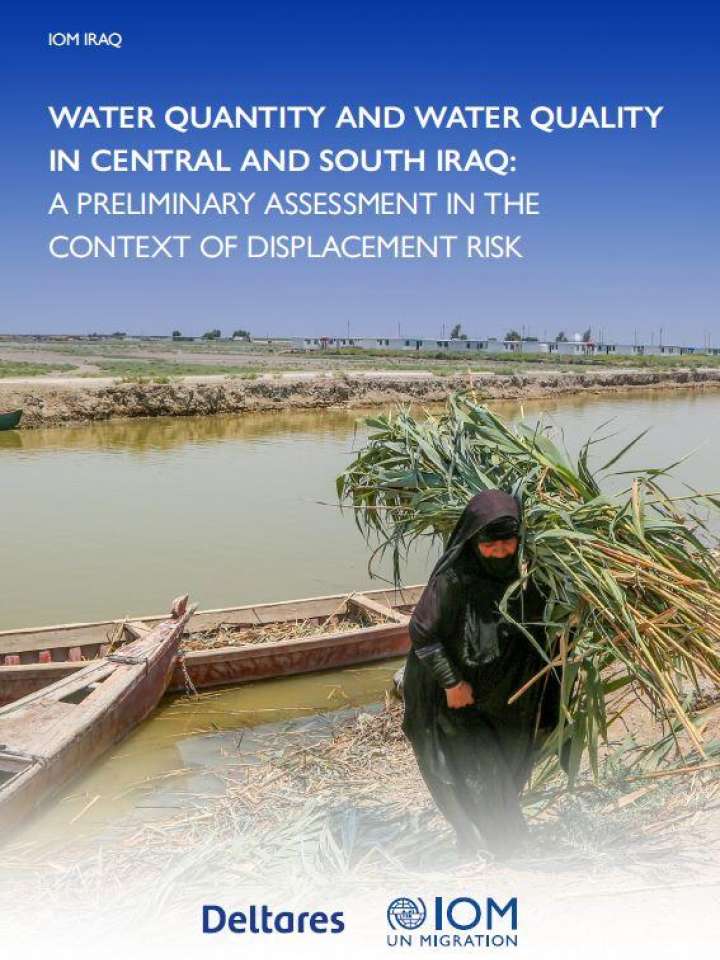Water quantity and water quality in Central and South Iraq: A preliminary assessment in the context of displacement risk
Iraq faces a multifaceted water crisis that impacts water supply and quality throughout the country. This crisis is expected to persist and may have implications at the humanitarian, economic, security and social levels (including population movements). The report focuses on understanding variations in water quantity and water quality in central and southern governorates over the last two decades and provides insight for the coming decades based on an exploratory model-based analysis.
The report concludes with key recommendations at the governorate, national, and transboundary levels to mitigate the effects of the water crisis:
- Renovate failing water treatment plants and install new treatment plants at the most critical wastewater locations in terms of pollution level and distance from the main drain (Governorate level).
- Focus on the overall improvement of efficiency of irrigated agriculture, the sector with the highest demand in water, by renovating and maintaining irrigation systems (National level).
- Assess whether there are any options for a combined management of the reservoirs that would lead to a higher average yearly flow in the Tigris and Euphrates rivers, with a similar or improved local situation in the system (Transboundary level).
Explore further
